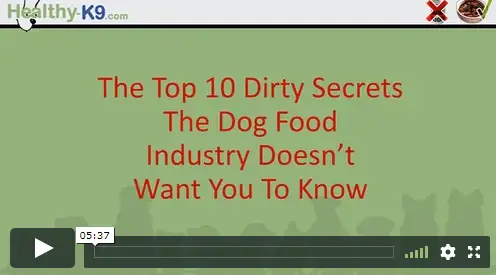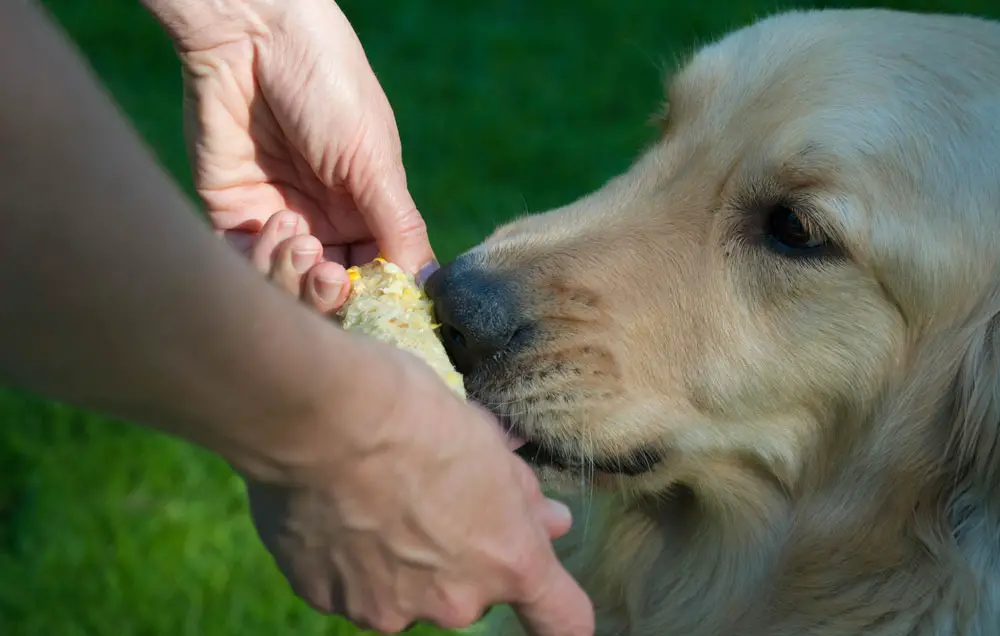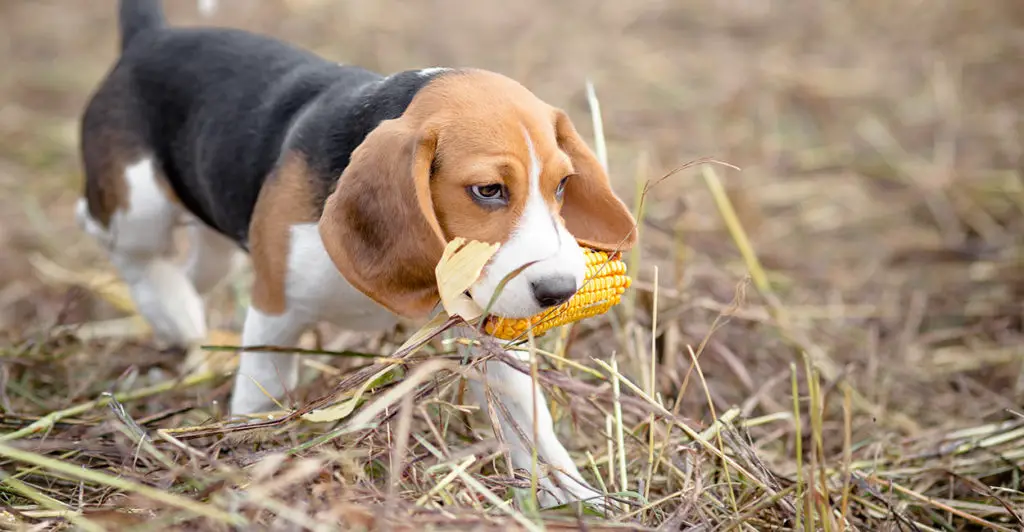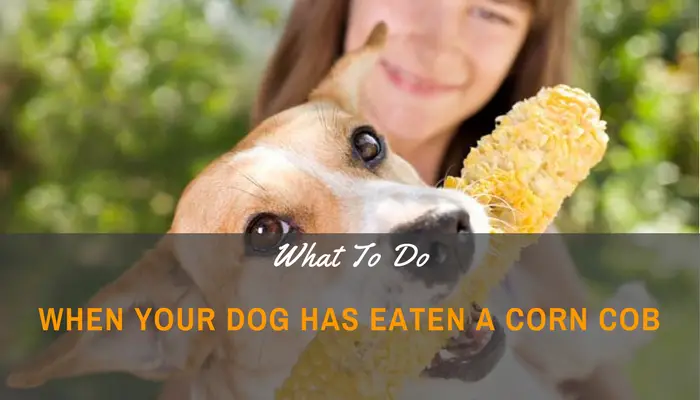Advice On What To Do When Your Dog Has Eaten A Corn Cob
How To Help Your Dog Pass A Corn Cob - Essential Tips For Dog Owners When Your Dog Ate A Corn Cob Or Corn On The Cob
Most humans love to eat corn straight off the cob, and this is true for many dogs. However, even when your dog loves to eat corn, keep in mind that the actual cob can pose a threat. This is because if swallowed whole, the dog is unable to digest the solid cob. When your pet has eaten a corn cob and then swallowed it, it can result in a blockage better known as an obstruction inside the intestines of the pet. This can result in a life-threatening issue even when it comes to smaller corn cobs or chewed pieces.
Common Signs Of A Blockage Or Obstruction
Symptoms can range from very simple onto dramatic, dependent on the location of the corn cob. The more common symptoms to look out for will include vomiting, discomfort or your dog loses his or her appetite. You may also find that your dog is passing smaller feces than usual, or they become constipated and are unable to pass a stool.

Top 10 Dirty Dog Food Industry Secrets. Prepare to have your mind blown!
Every dog owner needs to know these 10 secrets of the dog food industry.
I'm truly Gobsmacked !
Should you be concerned when you dog has eaten an entire corn cob? Here are some key steps to take when this happens:

Soure: rodalesorganiclife.com
1. Immediately Contact Your Vet
Avoid waiting. You should get your dog seen to immediately. If you are unsure if the animal was unable or able to digest the cob, rather be on the safe side and take your dog to the closest vet. This is even more important when your dog has vomited repeatedly, or they have diarrhea that has lasted for more than 24 hours or they have started behaving strangely. Dependent on how big the cob was that was eaten, your vet will ask you to watch the animal closely for symptoms associated with an obstruction or blockage.
2. Ask For An X-Ray
If your pet is still ill, ask your vet for X-ray's to examine for any signs associated with a blockage or obstruction. However, due to the fact that a corn cob will not always show-up very clearly in an X-ray, a recommendation for surgery will be mainly be based on the information you are able to provide your vet with. If an obstruction is left in the intestines for extended periods the site of the obstruction can end up tearing. This can result in a devastating or life-threatening complication, that will result in the need for emergency surgery.
3. Talk About The Treatment Options With Your Vet
The initial diagnosis as well as the treatment will be conducted at the vet. The most common treatment for an obstruction will include surgery. This involves removing the corn-cob which is causing an obstruction inside the animal body. In addition, other treatments will be necessary to deal with any secondary-effects when needed. This may involve administering IV fluids to help the dog stay hydrated. As soon as this condition has been diagnosed the better the chances of a successful outcome.
In a few of the nonsurgical cases, the vet will inject apomorphine into the dog vein which causes the dog to vomit up the corn cob. However, this treatment is only possible shortly after the dog has eaten the corn cob before it as had a chance to move down into the intestines. In certain cases, you might be lucky, and the dog will be able to pass the corn-cob out on his own without any issues. But there are many times when surgery may be your only option to successfully remove the blockage.
4. Management
After the initial treatment, you need to watch the symptoms and how they progress. It is very important that you are able to replace any lost fluids which are often caused from excessive diarrhea or vomiting to make sure your dog does not become dehydrated. After the surgery it is advisable that you restrict your dog activities for a few days. In addition, the diet of your dog should be made up of foods that are bland for at least 2 days until wounds that were caused from surgery have enough time to heal. This should then be followed with gradually returning the dog to his or her normal diet. It is important not to let your dog eat any food until the vomiting has come to an end or the obstruction has been removed.
Tips On Preventing Your Dog From Eating Entire Corn Cobs Along With Other Indigestible Items

Soure: thehappypuppysite.com
One of the best ways to stop your pet from eating objects that they cannot digest is to think about preventive measures to take. Here are a few tips to consider:
- If you are aware that your dog usually eats certain items that are regarded as indigestible you need to cut off the access to these items.
- Since most dogs have the ability to find items anywhere, your only choice is prevention.
- Do not give your pet leftover corn-cobs after you have finished eating dinner. If you throw them away in compost or your garbage bin, make sure your dog is not able to find them.
- Keep in mind that if your dog is prone to digging up rocks or finding corn cobs followed by eating them, this situation will happen again. Even worse, if your dog is small or a puppy he could die.
How To Stop A Dog From Eating Undesirable Objects
If you have a dog who prefers to spend most of his or her time outdoors, you may want to consider putting a basket muzzle on to stop the dog from chewing on undesirable items, especially when you take your dog on a walk.
Corn Cobs Cannot Digest Inside Your Dog Stomach
Unlike the majority of other vegetables, corn cobs cannot digest inside your dog stomach. They can be compared to a type of plastic which means they are prone to causing blockages or obstructions. Even worse, this type of obstruction can lead to a perforation when they have been left long enough to travel through the dog intestines. When your dog has eaten something like a corn-cob or any other object that should not have been eaten, it is always advisable to contact your vet immediately.
If your pooch has eaten a corn cob, it can be a dangerous and potentially life-threatening situation. Corn cobs are indigestible and can cause blockages in the digestive tract, leading to symptoms like vomiting, lethargy, loss of appetite, and more. It is crucial for dog owners to understand the risks associated with dogs eating corn cobs, and what steps to take if their pet has consumed one. We will discuss how to help your dog pass a corn cob and ensure the health of their digestive tract. We will cover the steps you should take if you think your dog has eaten a corn cob, including when to contact your vet and what a vet may do in these situations. Additionally, we will discuss the signs of an obstruction and what to do if surgery is required. By understanding the risks and taking the right steps, you can ensure the best outcome for your pet’s health.
What Happens When A Dog Eats A Corn Cob
When a dog eats a corn cob, it can be a dangerous and potentially life-threatening situation. The cob is not safe for dogs and can cause a blockage in their intestines, leading to serious health problems. The corn cob is absorbent, fibrous, and not easily digested, which can cause it to become stuck in the dog’s digestive tract. If the cob becomes stuck, it can cause stoppage in the gut and lead to symptoms like vomiting, lethargy, and loss of appetite. If your dog just ate a corn cob, it’s important to call your veterinarian immediately. They will likely perform a full physical examination and possibly an x-ray to assess the health of your dog’s stomach and gut.
In some cases, the vet may induce vomiting if the corn cob has not yet entered the bowels. However, this is not always possible and may cause further problems if the cob has already moved into the bowels. If the cob has become stuck, surgery may be required to remove the foreign object and prevent further damage to the dog’s digestive tract.
Why Corn Cob Is Dangerous For Dogs
Corn cobs can be a dangerous and potentially life-threatening hazard for dogs, even if they are just small dogs. If your pooch has eaten a corn cob, it is important to contact your vet immediately. Ingesting a corn cob can cause an intestinal blockage, which can be difficult to remove and may even require surgery. The size of the dog and how much of the cob was eaten will determine the severity of the problem. If your dog is showing signs of lethargy or vomiting, it is crucial to take them to an animal hospital and have a veterinarian assess their health. In some cases, inducing vomiting may be possible, but it is important to follow your vet’s instructions to prevent further problems. The remaining cob may become stuck in the dog’s digestive tract and cause a blockage, making it important to remove the corn cob in a safe way. To ensure the best health of your dog’s entrails, it is recommended to not let them eat things they shouldn’t, like a cob of corn, which is not absorbent and can lead to serious health problems.
How Long Does It Take For A Dog To Pass A Corn Cob?
The amount of time it takes for a dog to pass a corn cob depends on several factors such as the size of the dog, how much of the cob was eaten, and if there are any obstructions in the digestive tract. In general, it can take anywhere from a few days to a week for the cob to pass through a dog’s digestive system. However, if the dog is lethargic, shows signs of an obstruction, or the cob is causing problems, it is important to contact your veterinarian immediately. They may attempt to induce vomiting to remove the cob or, in severe cases, surgery may be required. The health of your dog and the safe removal of the cob should always be the top priority. It is always best to prevent dogs from eating things they shouldn’t, like corn cobs, in the first place. If you think your dog has eaten a cob, call your vet as soon as possible to assess the situation and ensure the best outcome for your pooch.
Signs Your Dog May Be Experiencing A Bowel Obstruction
If your dog is experiencing a bowel obstruction, there are several signs to look out for:
- Loss of appetite: If your dog is not interested in eating or drinking, it could be a sign of an obstruction.
- Vomiting: Vomiting is a common sign of a bowel obstruction and is especially dangerous if the dog is unable to bring up anything but bile.
- Abdominal pain: Your dog may seem uncomfortable, be restless, and show signs of abdominal pain.
- Diarrhea or constipation: Either of these conditions can indicate an obstruction.
- Lack of energy: If your dog is lethargic, it could be a sign that something is wrong.
- Bloated abdomen: A bloated abdomen is a sign that gas is building up in the gut and could be a sign of an obstruction.
If your dog is experiencing any of these signs, it’s important to take them to the vet as soon as possible. In some cases, the vet may be able to relieve the obstruction, but in other cases, surgery may be necessary.
When To Call Your Veterinarian For Corn Cob Ingestion
If your dog has eaten a corn cob, it is important to take action right away. Eating a corn cob can be dangerous for dogs, especially for larger breeds. If your dog has eaten a whole corn cob within the last couple of hours, it must pass through your dog’s stomach and entrails. If this cannot happen due to the size of the corn cob, it could cause serious problems for your pet. It is best to contact your veterinarian as soon as possible if you think that your dog has consumed a corn cob. Although dogs may enjoy eating them, they are not meant to be ingested in large pieces and likely require medical attention. You should also attempt to bring it back up the same way it went down in order to prevent it from moving further down the digestive tract. If this is not possible, surgery will likely be required in order to remove the obstruction and prevent any permanent damage from occurring.
How To Prevent Your Dog From Eating A Corn Cob
If you have a large dog, it is important to take steps to prevent them from eating a corn cob as this can be very dangerous for their health. Firstly, always make sure that your dog is in a secure and safe place when there are food items around. If your dog does manage to eat one, contact your vet as soon as possible as it can lead to serious problems for dogs. Additionally, try not to give your dogs food that they can easily eat such as corn cobs as they may enjoy the taste but it can lead to clog in their gut which will likely require surgery if not treated quickly. To prevent this issue altogether, never leave any food within reach of your dog and if you want to give them something enjoyable then look into healthier alternatives that they can still enjoy but won’t cause any issues if they do consume too much.
The Importance Of Monitoring Your Dog After Eating Corn On The Cob
Monitoring your dog after eating corn on the cob is important for their health and safety. If you let your dog eat one, it’s important to keep an eye on them after to ensure they don’t become sick. The best way to monitor your dog is by keeping them in a safe place for some time afterwards such as a crate or small room. This will help prevent any further food items from being eaten which could make them ill. Dogs often enjoy eating corn cobs, but if too many are consumed it can lead to gastrointestinal clog, so it’s important you keep track of how many they’ve eaten. If your dog has eaten multiple cobs, contact your vet asap and they may decide to take action such as inducing vomiting or surgery if needed. Surgery is usually undertaken if the cob has been partially digested and can be quite serious, so monitoring is essential to preventing this situation occurring in the first place.
The Option Of Surgery To Remove A Corn Cob Blockage In Dogs
When a dog has eaten a corn cob, it can become a serious health risk if it becomes lodged in the digestive tract. In order to remove the blockage, surgery is often the only option. Place your dog in the care of a qualified veterinarian who will be able to assess the situation and recommend the best course of action. Surgery should be undertaken as soon as possible to avoid further complications arising from the blockage. Dogs do not always understand that they shouldn’t eat things like corn cobs, so it is important to keep an eye on them and prevent them from consuming anything that could pose a risk to their health. While surgery can be an expensive undertaking, it is often necessary for dogs who have ingested corn cobs in order to prevent more severe health problems from occurring.
Conclusion
In conclusion, if you suspect that your dog has swallowed a corn cob, it’s important to take action quickly. While dogs enjoy eating many different things, a corn cob can be dangerous and can cause an obstruction in their intestines. To prevent this from happening, it’s best to keep corn cobs out of your dog’s reach and supervise them when they are eating. If your dog does swallow a corn cob, it’s important to take them to the vet as soon as possible. In some cases, surgery may be necessary to remove the obstruction and prevent further problems. With prompt treatment, your dog can make a full recovery and enjoy a happy, healthy life. So, always be vigilant and proactive in taking care of your furry friend.
Frequently Asked Question (FAQs)
If you’ve still got questions about How to help my dog pass a corn cob, then these may help:
Why Can’t Dogs Digest Corn Cobs?
Even if your dog manages to snatch a corn cob from your kitchen, it is inadvisable as they are not able to digest them. Pet owners should be aware that the corn cob can cause blockages in their dog’s gastrointestinal tract. If you find that your dog has eaten a corn cob, it is best to observe how much they ate and then call the vet for advice. Since eating a corn cob can cause severe medical issues, the vet will likely tell you to watch your pet closely and take preventive measures. According to the American Veterinary Medical Association, these measures may include pain relief medications and even surgery if necessary.
Can A Dog Survive Eating A Corn Cob?
It is not recommended for dogs to eat a corn cob as it may cause them to experience blockages in their digestive tract. If a dog does consume a corn cob, immediate action needs to be taken in order for the dog to have the best chance of survival. Depending on the severity of the blockage, a vet may recommend that the dog receive pain relief and medication in an attempt to soften or dissolve the food item. In more serious cases, surgery may need to be undertaken in order to remove the offending item from their system. It’s best to supervise your pet while they are eating and try your best to prevent them from consuming any materials which could harm them; this includes corn cobs.
What Should I Do If My Dog Ate Corn Cob?
If your dog has eaten a corn cob, it is important to take action as soon as possible. The first thing to do is to prevent the dog from eating any more of the cob, or from eating anything else. If your dog has already begun vomiting, try to keep him away from food and water for 12-24 hours. You may also want to consult your vet for advice on how best to treat the situation. Depending on the severity of the situation, surgery may be undertaken in order to remove any pieces of cob that may have been left in your dog’s stomach or intestines.
Can Corn Cause Intestinal Blockage In Dogs?
Yes, corn can cause an intestinal blockage in dogs if it is not properly digested. Corn kernels and cob pieces can get stuck in the digestive tract, leading to a painful and potentially life-threatening situation for the dog. Intestinal clog can prevent food, liquid, and gas from passing through the digestive system, leading to discomfort, vomiting, diarrhea, abdominal pain, and other digestive problems. In severe cases, surgery may be required to remove the congestion. To prevent these problems, it is best to provide dogs with a balanced and nutritious diet designed specifically for their needs and keep them away from eating indigestible objects such as corn cobs. If you suspect that your dog has eaten a corn cob or is experiencing digestive problems, it is important to seek veterinary care immediately.
What Will The Vet Do If My Dog Ate A Corn Cob?
If your dog has eaten a corn cob, the vet should assess the health of your dog’s intestinal tract to determine if any blockages or obstructions have occurred. The vet may suggest an X-ray to get a better look at the intestines and try to locate the corn cob. Depending on the size of the cob and where it is located, they may be able to remove it in a non-invasive way and prevent any further damage. If surgery is necessary, then the vet will likely take out the entire corn cob.
Is Sweetcorn From The Tin Safe For Dogs?
When it comes to feeding your dog sweetcorn from the tin, it is important to consider their health and safety. Sweetcorn can cause problems for the health of your dog’s intestine, as they are not naturally able to digest it properly. If you give them a corn cob, the risk of a blockage in their intestines is high and may require surgery if they get stuck. Therefore, it is generally advised that sweetcorn should be given sparingly or not at all. If you do decide to feed them sweetcorn, make sure that it is cooked and preferably without any added salt or sugar. Additionally, avoid giving them whole cobs as this could lead to an obstruction in their intestines.


